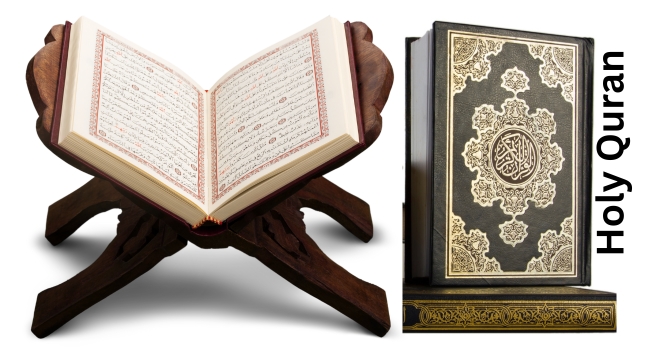The Basics Understanding of the Muslim Religion

Islam, one of the world’s major religions, is followed by over 1.9 billion people globally. This article aims to provide a clear understanding of the basics of the Muslim religion, highlighting its core beliefs, practices, and values. Whether you are new to learning about Islam or just seeking a refresher, this guide will help you grasp the essentials in simple terms.
What is Islam?
Islam is a monotheistic religion that believes in the worship of one God, known as Allah in Arabic. The religion was founded in the 7th century in Mecca (modern-day Saudi Arabia) when the Prophet Muhammad received revelations from Allah through the angel Gabriel. These revelations were later compiled into the holy book of Islam, the Quran.
The Five Pillars of Islam
The foundation of a Muslim’s faith is built upon the Five Pillars of Islam. These pillars are essential practices that every Muslim is encouraged to follow:
- Shahada (Faith): The declaration of faith stating, “There is no god but Allah, and Muhammad is His messenger.” This statement signifies the core belief in the oneness of God and the prophethood of Muhammad.
- Salah (Prayer): Muslims perform five daily prayers facing the Kaaba in Mecca. These prayers are spread throughout the day, serving as a constant reminder of faith and a way to connect with God.
- Zakat (Charity): Muslims are required to give a portion of their wealth to those in need. This act of charity is seen as a way to purify one’s wealth and help the less fortunate.
- Sawm (Fasting during Ramadan): During the month of Ramadan, Muslims fast from dawn until sunset. This fast is a time of self-reflection, spiritual growth, and increased devotion.
- Hajj (Pilgrimage to Mecca): Every Muslim who is physically and financially able must make the pilgrimage to Mecca at least once in their lifetime. Hajj takes place annually and is a time of unity and equality among Muslims worldwide.
3. Core Beliefs in Islam
- Belief in One God (Tawhid): The concept of monotheism is central to Islam. Muslims believe in a single, all-powerful God who created and sustains the universe.
- Prophets: Muslims believe that God has sent prophets throughout history to guide humanity. Prophets such as Adam, Noah, Abraham, Moses, Jesus, and Muhammad are highly respected, with Muhammad being the last and final prophet.
- Angels: Angels are considered beings created by God to perform specific tasks, such as delivering messages to prophets.
- Holy Books: Besides the Quran, Muslims also respect previous scriptures revealed to other prophets, such as the Torah, Psalms, and Gospel. However, the Quran is considered the final and most complete guide.
- Day of Judgment: Muslims believe in an afterlife where everyone will be judged based on their deeds. The righteous will be rewarded with paradise, while the wrongdoers will face punishment.
- Divine Decree: Muslims believe that everything happens according to God’s will and wisdom. This belief encourages acceptance of life’s circumstances, whether good or bad.
4. Islamic Practices and Daily Life
- Halal and Haram: Halal refers to what is permissible in Islam, while haram denotes what is forbidden. These terms often apply to food, drinks, and actions, guiding Muslims in their everyday choices.
- Modesty and Dress: Modesty is emphasized in Islam, and both men and women are encouraged to dress modestly. For women, this often includes wearing a hijab or headscarf, though practices vary widely across cultures.
- Friday Prayers (Jumu’ah): Friday is a special day of the week for Muslims. On this day, the Jumu’ah prayer is performed in congregation, and it includes a sermon that addresses moral and social issues.
The Importance of Community in Islam
The sense of community, known as the Ummah, is a significant aspect of the Muslim religion. Muslims are encouraged to support one another, foster unity, and engage in acts of kindness and compassion. Community gatherings, especially during prayers and Islamic celebrations, strengthen the bond among Muslims.
Islamic Festivals and Celebrations
Eid al-Fitr: Celebrated at the end of Ramadan, Eid al-Fitr is a joyous festival marked by communal prayers, feasting, and giving gifts. It is a time to thank Allah for the strength to complete the month of fasting.
Eid al-Adha: Also known as the Festival of Sacrifice, Eid al-Adha commemorates the willingness of Prophet Ibrahim (Abraham) to sacrifice his son as an act of obedience to God. This festival involves the sacrifice of an animal, with the meat shared among family, friends, and the needy.
Misconceptions about Islam
Islam is often misunderstood due to misconceptions and stereotypes. It is important to recognize that Islam promotes peace, respect, and tolerance. The actions of a few do not represent the beliefs of the entire Muslim community. Educating oneself and engaging in respectful dialogue are essential steps in overcoming these misunderstandings.
Conclusion
Islam is a religion of peace, faith, and community. Understanding its basic tenets helps us appreciate the diversity and values of Muslims worldwide. By learning about the Five Pillars, core beliefs, and daily practices, we gain a clearer picture of what it means to be a Muslim. Respect and open-mindedness are key to fostering harmony among people of all faiths.





